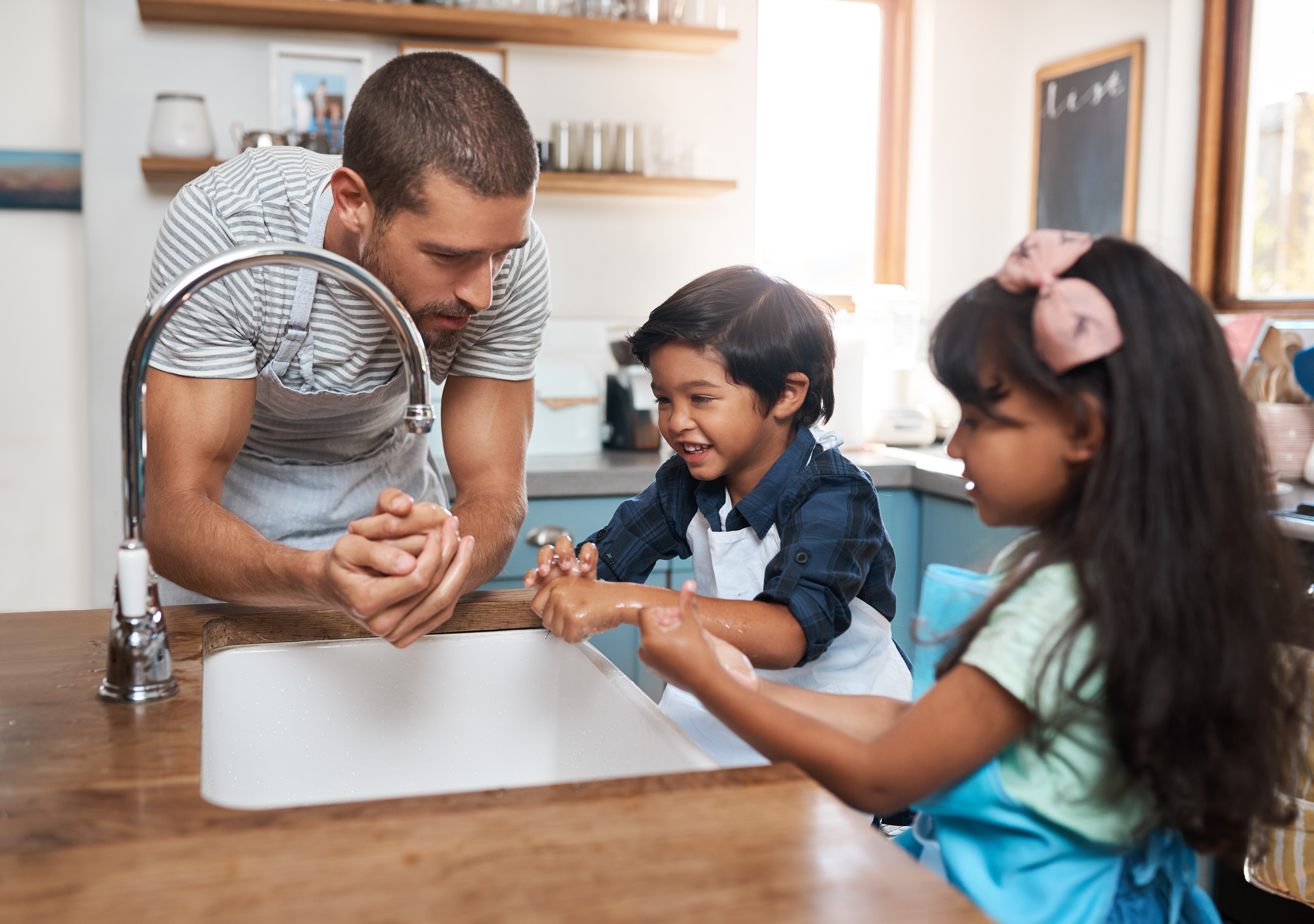
Did you know that washing your hands properly can prevent 1 in 3 diarrheal illnesses and 1 in 5 respiratory infections like the common cold or the flu? Handwashing is especially important when handling food and at other times when you are likely to get and spread germs. Protect yourself and your family by washing your hands at these key times:
- Before, during, and after preparing food
- Before eating
- After handling pets, pet food, or pet treats
- After using the restroom or changing a diaper
- After blowing your nose, coughing, or sneezing into your hands
- After touching garbage
- Before and after treating a cut or wound
- Before and after caring for someone who is sick
Handwashing While Cooking
It’s always important to wash your hands before, during, and after preparing any food and after touching raw meat, poultry, seafood, or eggs. Your hands can spread germs around your kitchen and to other foods. Washing your hands often and correctly while you’re cooking can help prevent cross-contamination.
USDA’s Food Safety and Inspection Service conducted a study in which they observed participants cooking in a test kitchen. Participants failed to wash their hands or washed them incorrectly over 95 percent of the time they should have. Nearly half of the participants cross-contaminated spice containers because they didn’t wash their hands adequately.
Five Handwashing Steps
Follow the five steps for effective handwashing to help prevent the spread of germs and keep you and others healthy.
- Wet your hands with clean, running water (warm or cold), turn off the faucet, and apply soap.
- Lather your hands by rubbing them together with soap. Lather the backs of your hands, between your fingers, and under your nails.
- Scrub your hands for at least 20 seconds. If you hum the “Happy Birthday” song twice from beginning to end, that’s about 20 seconds!
- Rinse your hands well under clean, running water.
- Dry your hands with a clean towel or air dry them.
If you don’t have access to soap and clean water to wash your hands, you can use a hand sanitizer that contains at least 60% alcohol. When working in the kitchen, though, it’s best to wash your hands with soap and water. Hand sanitizers may not get rid of all the germs on your hands, and they may not be as effective when your hands are visibly dirty or greasy.
You can learn more about keeping your hands clean on CDC’s handwashing website and read about the science behind the recommendations.

